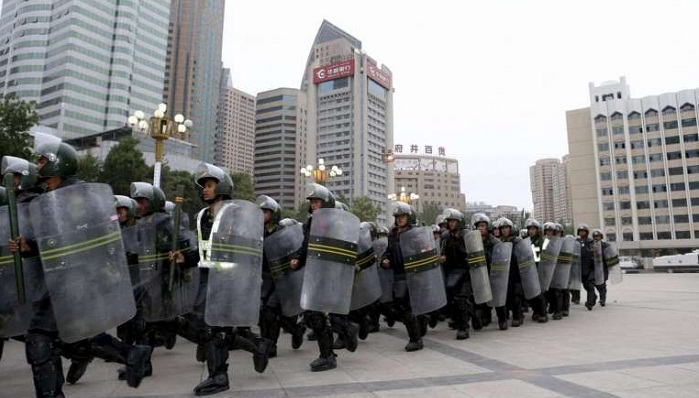The government has made no public comment about the Sept. 18 attack at the Sogan colliery in Aksu, with Radio Free Asia reporting most casualties were members of the Han Chinese majority and police blaming knife-wielding separatists.
Radio Free Asia, citing Xinjiang police, said the 17 killed were all suspects in the attack, including three men believed to have been the ringleaders and their family members.
Repeated calls to the Xinjiang government seeking comment went unanswered.
"I heard from colleagues who participated in the operation that the military blew up the cave where the suspects were hiding," the report quoted Xinjiang police officer Ghalip Memethe as saying.
"That is why we were able to kill all of them with zero victims [from our side]. Seventeen corpses were gathered after the explosion."
On Saturday, state media microblogs published pictures provided by the Ministry of Public Security of armed police on what it said was a 56-day mission to root out militants in Xinjiang, though it gave no details of who they were hunting, only that all the suspects had been killed.Some of those reports were later removed from the Internet.
Radio Free Asia said that report likely referred to the operation to find the suspects in the coal mine attack.
The Ministry of Public Security did not respond to requests for comment. While the government often gives details about violence in Xinjiang, it is not uncommon for them not to report certain incidents at all.
Rights groups and exiles say the violence in Xinjiang stems more from widespread Uighur resentment at Chinese controls on their religion and culture rather than being committed by a well-organized militant group.
China strongly denies abusing human rights in Xinjiang, and says it is facing a determined campaign from Islamic radicals and separatists.
China has appealed for the international community to provide more help in its campaign against Xinjiang militants following the attacks in Paris.
Western countries have long been reluctant to share intelligence with China or otherwise cooperate, saying China has provided little evidence to prove the existence of a cohesive militant threat and citing worries about possible human rights abuses in Xinjiang.
More about:
















































